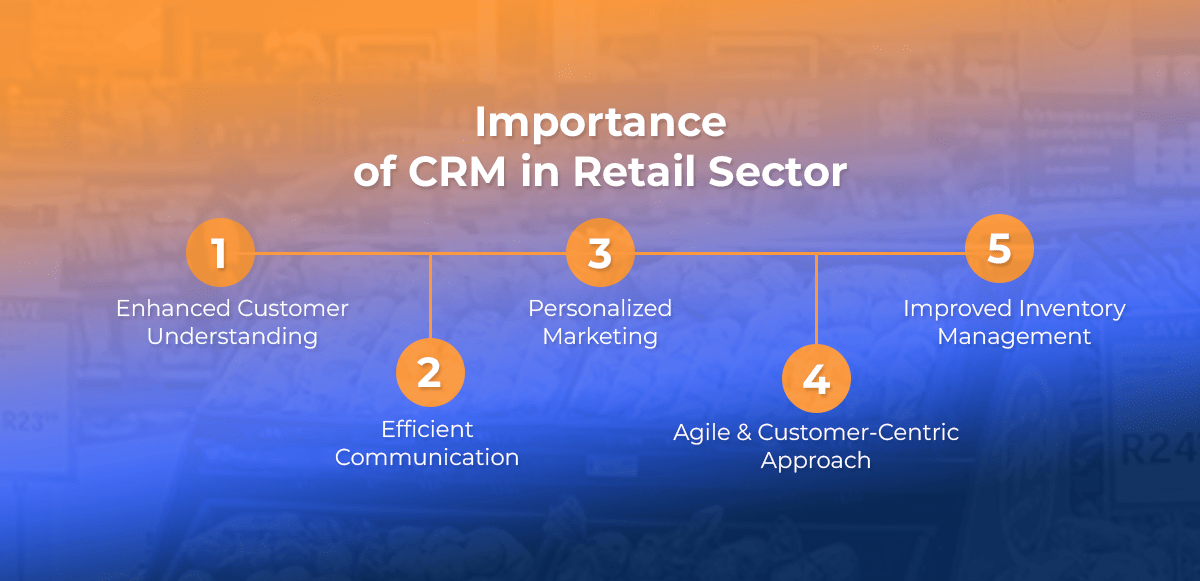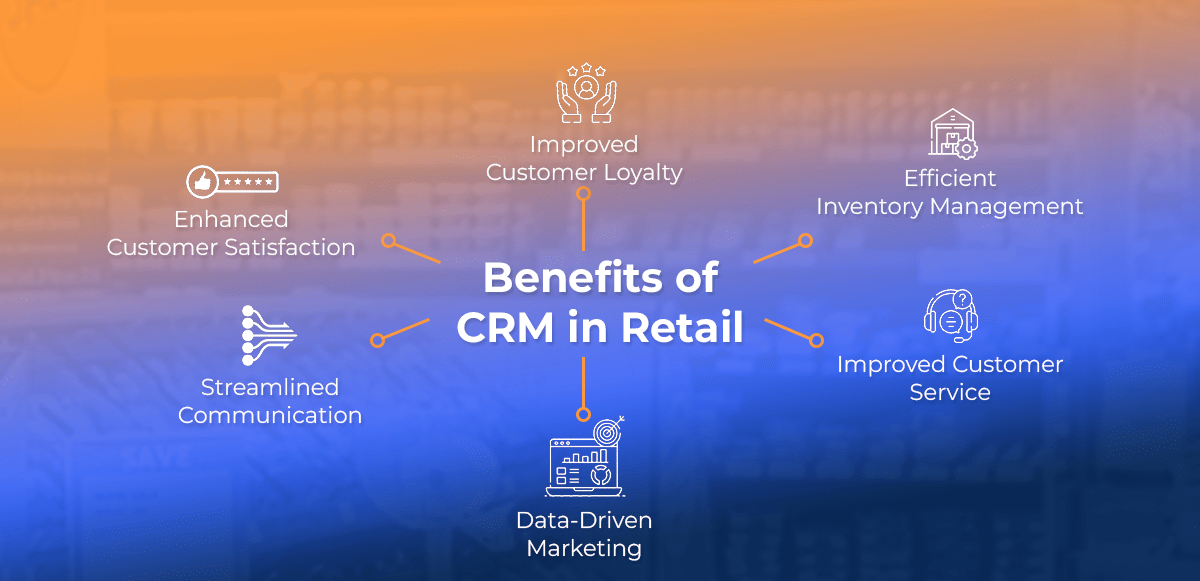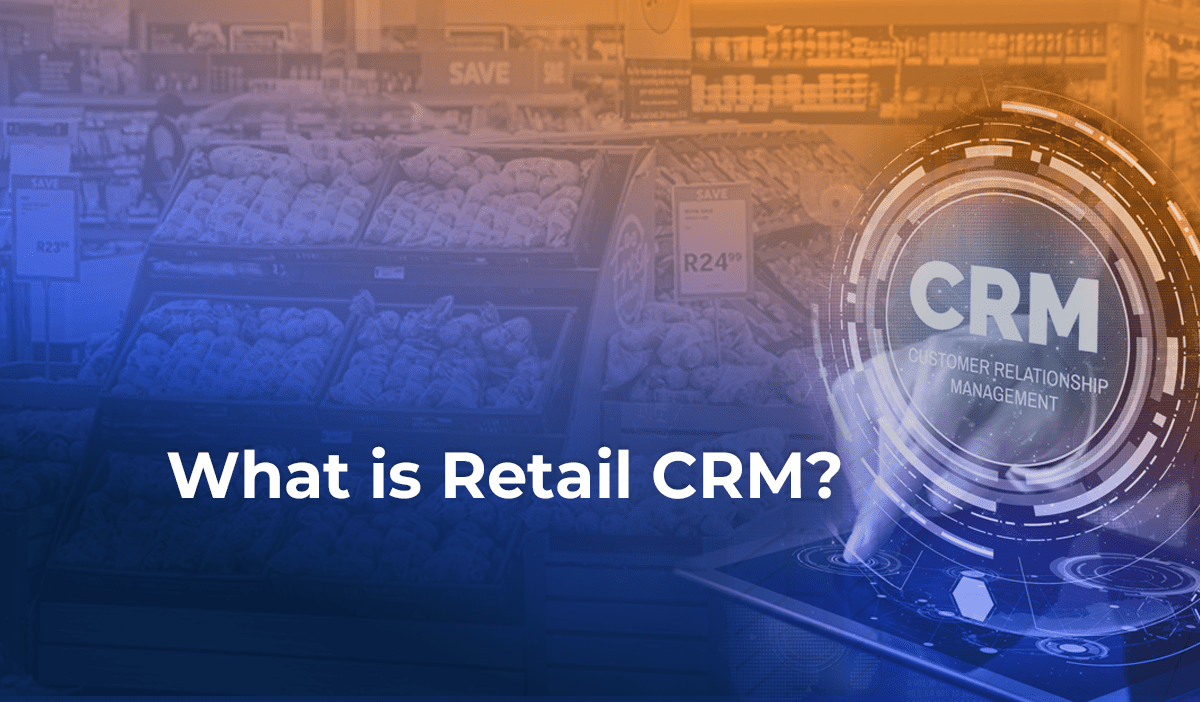In the fast-paced world of retail, building solid connections with customers is key to success. That's where Customer Relationship Management (CRM) comes in. It's not just a tech term—it's about using smart technology and customer data to really understand and improve relationships.
Think of retail CRM like a super-smart system that helps stores gather, sort, and make sense of customer info. It's like having a backstage pass to what customers like, how they behave, and what they've bought before. With this information, stores can make their marketing more personal, step up their customer service game, and, of course, sell more stuff.
Retail CRM systems are like personalized toolkits designed just for retail. They've got cool features like sorting customers into groups, managing loyalty programs, running special ads, and keeping all communication channels in sync.
Imagine you go to buy milk, but it's not there. If this happens a lot, you might not want to come back. Stores can avoid this by using a smart system to always have milk in stock. This system also helps the store know what you like, so they can make your visits even better. That's why automated inventory and CRM are like superheroes for a great shopping experience!
Beyond just selling stuff, retail CRM is like the secret sauce that helps stores really get customers. It's all about using data to make smart decisions, keeping customers happy, and ensuring they return. In the retail game, where everyone's competing, using CRM is like having a secret weapon. It's how stores today stay ahead, connect with customers, and make sure they're on top of their game.
Importance of CRM in Retail Sector

A Customer Relationship Management (CRM) tool is super important for stores today. In retail, where giving customers a special experience is really crucial, CRM plays a big role in understanding and meeting what customers want.
With CRM Software, stores can organize and study information about customers. This helps them customize their services, deals, and how they talk to customers based on what each person likes and has bought before. This special treatment not only makes customers happier but also makes them want to keep coming back.
CRM systems help stores be more organized, providing insights into managing their products, communicating better between different parts of the store, and creating focused ads. Basically, CRM in retail is like the key to building and keeping good relationships with customers, which keeps them coming back and helps the store stay ahead of their competitors.
Role of CRM in Inventory Management for Efficient Supply Chain Operations
Customer Relationship Management (CRM) performs a pivotal role in optimizing inventory control for efficient supply chain operations. By integrating CRM systems with stock control methods, businesses gain a complete knowledge of customer calls for patterns, possibilities, and shopping behaviors. This insight permits extra accurate calls for forecasting, allowing agencies to preserve ideal stock stages and reduce the risk of overstocking or stockouts.
CRM systems facilitate actual-time conversations between sales, customer support, and stock management teams, ensuring a seamless go with the flow of facts throughout the supply chain. The ability to examine customer interactions and purchase histories additionally assists in figuring out fast-transferring items and sluggish-transferring stock, assisting in strategic decision-making for procurement and inventory replenishment.
In essence, CRM integration in stock control enhances visibility, responsiveness, and normal efficiency throughout the delivery chain, contributing to an extra agile and consumer-centric approach.
Benefits of CRM in Retail

Enhanced Personalization:
- Tracks customer preferences, purchase history, and interactions for a personalized shopping experience.
- Allows retailers to understand individual needs, leading to more focused advertising.
Improved Customer Loyalty:
- Facilitates the creation of special loyalty programs and personalized deals based on customer behavior.
- Makes customers feel appreciated and connected, encouraging repeat business.
Efficient Inventory Management:
- Monitors product performance, manages stock levels, and predicts customer demands.
- Prevents overstocking or understocking, ensuring popular items are consistently available.
Streamlined Communication:
- Centralizes customer data and interactions for smoother communication between sales, marketing, and customer service teams.
- Promotes an organized and responsive approach to customer needs.
Data-Driven Marketing Campaigns:
- Empower retailers to run focused and data-driven marketing campaigns.
- Identifies trends and preferences through customer data for more effective advertising.
Improved Customer Service:
- Enables customer service representatives to access customer purchase history and preferences.
- Facilitates faster problem resolution and tailored solutions, enhancing overall customer experience management
Overall Efficiency and Competitiveness:
- Transforms how stores interact with customers, leading to increased customer satisfaction.
- Builds lasting relationships, strengthens loyalty, and enhances the overall efficiency of the retail operation.
- Keeps stores competitive in the fast-paced retail environment through smart utilization of customer data.
Conclusion
In conclusion, leveraging the power of CRM in Retail Industry is a game-changer for driving growth and success. By understanding customer preferences and behaviors, optimizing inventory, and fostering seamless communication, CRM empowers retailers to enhance efficiency and deliver a customer-centric experience, ultimately propelling the business toward sustained success.







